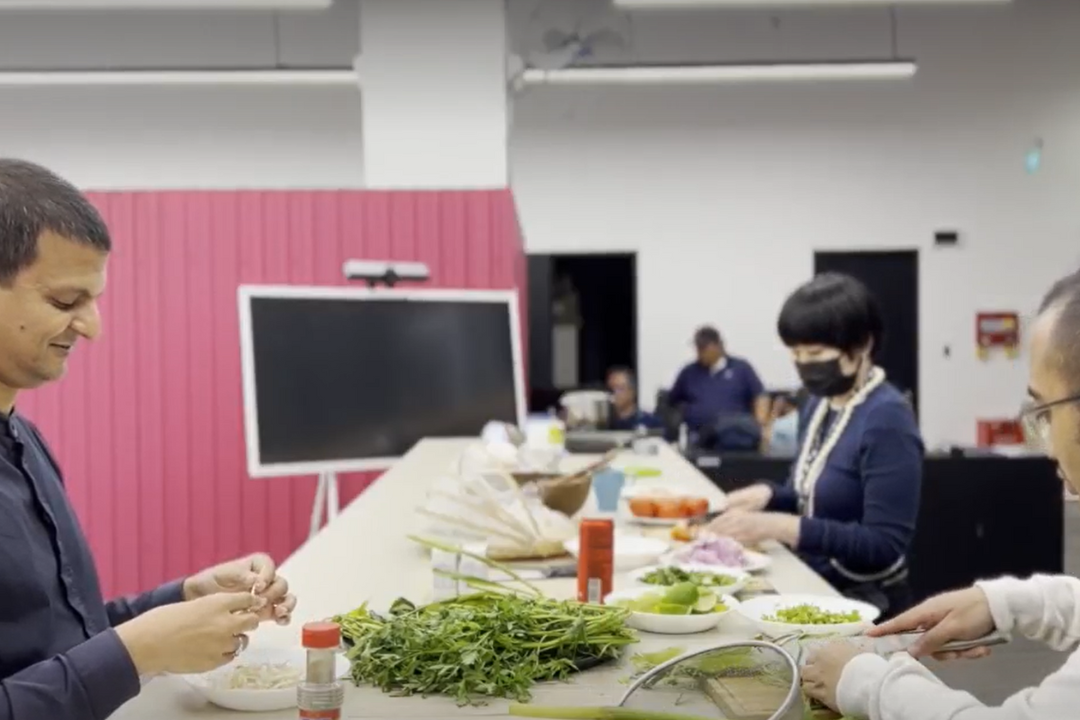Whereas western philosophy, beginning from the Greek philosopher Plotinus, envisions plants to be inert or lower in living function when compared to the human being, animist thought or “more than human” paradigms situate plants as active agents within the social world. As such, animist thought affirms the vitality of all matter in the universe.
This conception of animist vitality is crucial in understanding the Archival Herbarium. Drawing from the cultural theorist and philosopher Walter Benjamin, this lecture-performance by Farhan Idris will look into how intangible archives of food practices come to be ‘forgotten’ and then ‘resurrected’. Using traditional herbs from the Malay world, Farhan will trace how the loss of practices and objects relating to the natural world could lead to a futuristic knowledge of recuperation and reclamation.
The lecture was accompanied by a performance, whereby Farhan prepared a traditional Malay salad called “kerabu ulam” using relatively lesser-known herbs from Singapore like fiddlehead ferns (pucuk paku), sawtooth coriander (ketumbar jawa) and the ulam raja (cosmos caudatus).
This vegan salad was served to participants with a curious question: can remembrance be performed?


